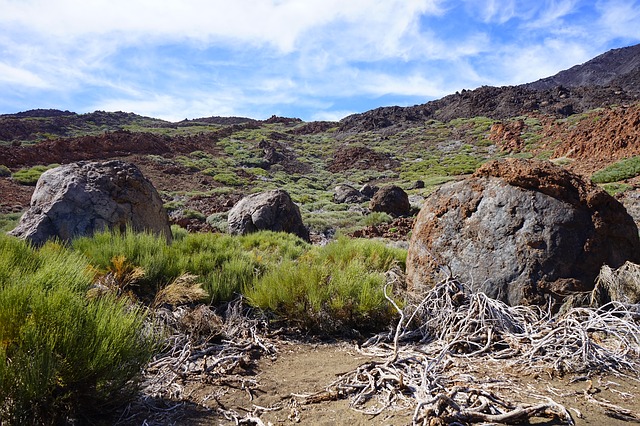
You’ve probably seen the label “broad-spectrum” on your sunscreen. The Skin Cancer Foundation recommends using a broad-spectrum sunscreen because it protects against UVA and UVB rays. In fact, the very definition of a broad-spectrum product is a product that is effective in a wide variety of ways.
While you won’t find any broad-spectrum labels on bags of Cascade Minerals Remineralizing Soil Booster, you can be assured that compared to other brands of rock dust you are getting a soil amendment product with the greatest diversity of beneficial minerals.
That’s because Remineralizing Soil Booster is made entirely of finely milled volcanic basalt from Central Oregon, with rocks that date back to the Miocene Era. Formed from the rapid cooling and solidification of magma and lava, basalt is the rock material that makes up most of the soils around the world and offers the widest array of minerals and trace elements that are essential to soil fertility and plant health.
In fact, volcanic basalt’s mineral content is significantly higher than the mineral content of glacial rock dust which can contain high levels of potassium. It also naturally stacks up favorably to single source rock dusts like rock phosphate, a common soil amendment that only supplies phosphorus.
Unlike these other products, finely ground volcanic basalt delivers potassium and phosphorus along with a healthy mix of calcium, magnesium, manganese and iron.
Here’s what else you need to know about the benefits of basalt over other rock types:
- Compared to rocks which are high in quartz, basalt weathers relatively quickly which means that it begins to release nutrients to plants as soon as the roots make contact.
- Basalt continues to deliver a steady flow of nutrients over time, even as it decomposes. The slow-release benefits of crushed volcanic basalt make it an effective way to minimize deficiencies, particularly with fast-growing crops that experience periods of rapid nutrient uptake.
- Basalt also contains soluble silicon which contributes to the strength of cell walls and makes crops more resistant to pests and disease. Silicon also strengthens stems, helping plants stand tall and capture more light to maximize photosynthesis.
By adding volcanic basalt to soil and potting mixes, you’ll see stronger root systems, healthier plants and increased yields.

How to I get and source basalt rock dust in CT?